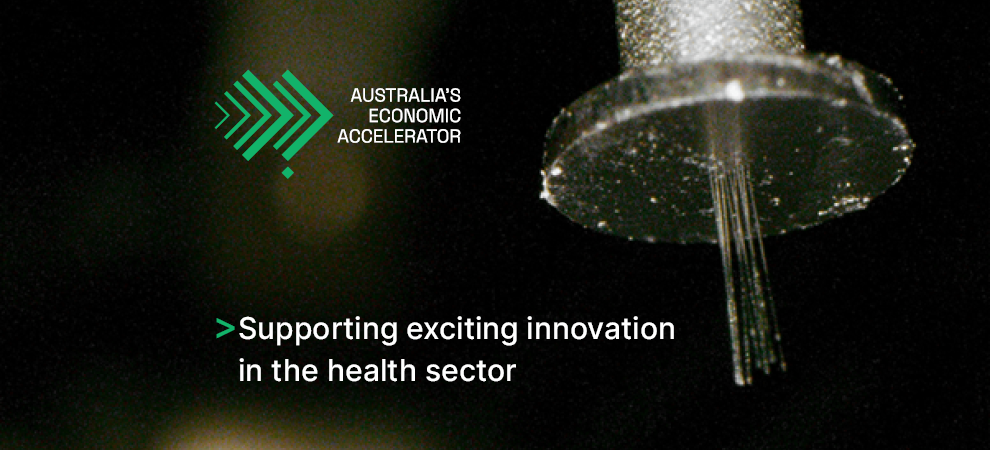Australia is a world leader in health and medical research. Researchers at our universities are working on innovations in the sector that could change lives for the better.
The Australian Government is supporting this through a $1.6 billion investment in Australia’s Economic Accelerator (AEA) aimed at transforming Australia’s research translation and commercialisation landscape.
AEA is funding projects that align with national priorities, including medical manufacturing, to take innovative ideas through to new products and services.
The AEA Seed pilot program has invested more than $26 million in nearly 100 research projects across the country. Read about some of the exciting innovations in the health and medical space.
Improving dementia care through the power of music
It is estimated that more than 420,000 Australians live with dementia.
Music Attuned Technology – Care via eHealth (MATCH) is transforming the way dementia care is delivered through the power of music, making it more personalised, effective and accessible.
MATCH has developed a groundbreaking music adaptive technology that uses AI, sensor technology and music therapy principles to manage symptoms of dementia.
Lead Entrepreneur Professor Felicity Baker said that MATCH is committed to developing a non-pharmacological approach to support the health and wellbeing of people living with dementia through the power of music.
“The AEA Seed grant enabled us to accelerate the development of the technology so that we can create a scalable health technology solution capable of reaching millions of people living with dementia who might otherwise not have access to music therapists,” Professor Baker said.
MATCH is poised to revolutionise how we care for individuals with dementia, offering a solution that can support at-home carers and be implemented across aged care facilities worldwide.
Revolutionising epilepsy treatment
Sixty million people worldwide live with epilepsy and more than 30% are drug resistant.
University of Melbourne researchers have partnered with Carbon Cybernetics to commercialise an implantable device (pictured) that can monitor brain activity with high precision.
Their aim is to predict and prevent epileptic seizures, which could also lead to a breakthrough in effectively treating depression and anxiety without the use of drugs.
Lead entrepreneur Professor Steven Prawer said the grant has enabled him to bring together the team needed for technical and commercial success.
“The AEA Seed grant has given me the time, headspace and resources to devote myself to developing the surgical tools needed to safely insert our devices into the brain,” Professor Prawer said.
This technology has the potential to transform the lives of individuals with epilepsy by providing a drug-free treatment option. It's a significant advancement not only for Australian healthcare but also for global medical practices.
To read more AEA case studies, visit AEA News and Media.

